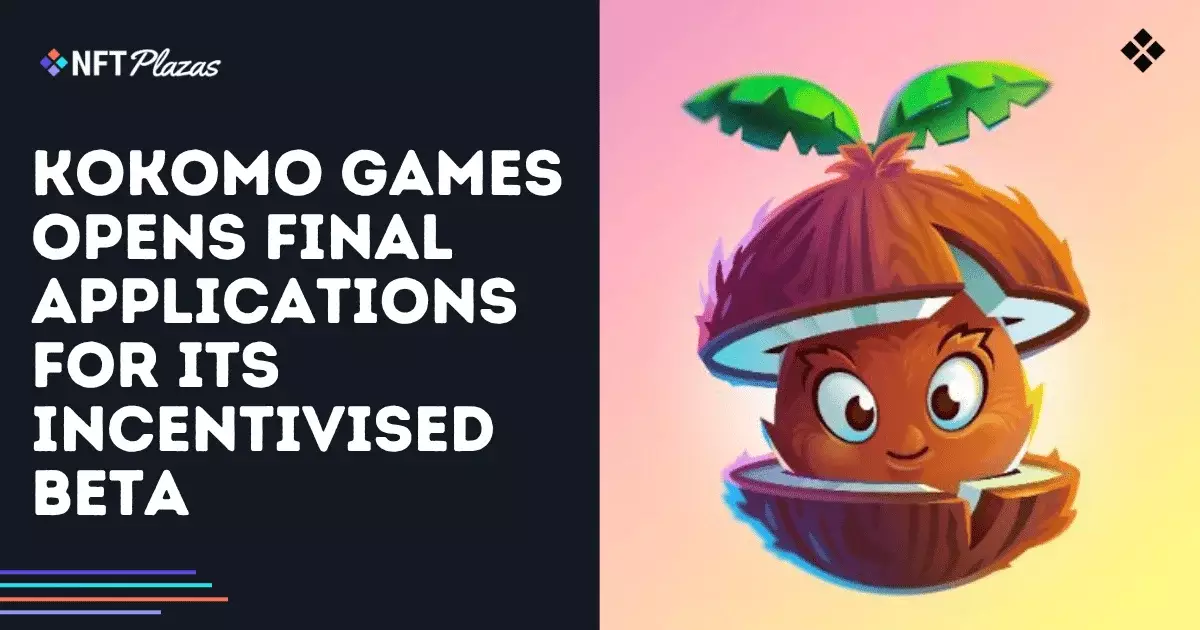Kokomo Games’ latest effort to launch its browser-based mini-game ecosystem is cloaked in promising language: early access, pre-funded accounts, rewards, and a tantalizing limited-time beta. Yet beneath this veneer lies a troubling trend—a spectacle of corporate opportunism coin-operated under the guise of democratizing gaming. By integrating blockchain, NFTs, and tokens into what should be pure entertainment, Kokomo is not merely innovating but exploiting the allure of digital assets to manipulate user engagement and, ultimately, monetize players’ enthusiasm. The claim that this platform is about “fun” and “player feedback” glosses over the reality: an elaborate scheme to entangle unsuspecting users into a web of speculative finance, where their participation could become an unpaid investment in someone else’s profit machine.
The Illusion of Free Access and Limited Rewards
Although the beta advertises free accounts and potential rewards, the entire premise is built on an illusion of inclusivity. Access hinges on applying through a form that demands social media followings and a quick, superficial explanation of interest—a gatekeeping tactic that favors the engaged and the marketing-savvy rather than genuine players. The promise of “early access” and “utility” via NFTs and tokens encourages a mindset of investment rather than leisure. Moreover, the scheduled launch of a native token, $KOKO, promises sales, staking, and governance—features that are standard fare for crypto schemes aspiring to long-term monetization, rather than dedicated gaming experiences.
The Push for Blockchain Integration: A Step Too Far
The integration of Web3 features creates an ecosystem that appeals primarily to crypto enthusiasts and investors craving a quick flip or special advantage. The Kokomons NFT collection, with its utility-driven perks—reduced in-game fees, governance, staking, and exclusive mode access—are advertised as benefits that encourage participation, but they also serve as a clever marketing stratagem to lock-in users into a system where their engagement is fueled more by potential profit than genuine gameplay enjoyment. This shift from traditional, skill-based gaming to a hybrid model that blurs gaming with speculative assets undermines the core principles of entertainment and fair competition—a terrible precedent for the wider industry.
A Startup’s Strategic Exploitation of the Gaming-Crypto Nexus
Kokomo’s backers—figures like Steve Aoki and Mike Shinoda—are emblematic of a broader trend: celebrities and investors attracted not solely by gaming innovation but by the lucrative, high-risk intersections of blockchain and entertainment. When well-funded entities tie their credibility to a platform built on NFTs, tokens, and incentivized beta tests, they risk steering the gaming community toward a dangerous horizon—where user engagement is driven less by gameplay and more by earning potential and asset speculation. This kind of manipulation risks alienating traditional gamers who seek genuine leisure and social interaction, as well as encouraging unsustainable economic bubbles.
The Broader Implication: Is This the Future of Gaming?
Kokomo’s approach exemplifies a superficial shift towards blockchain in gaming, one that prioritizes financial schemes over meaningful innovation. While the allure of owning NFTs and earning tokens might attract a niche audience, it threatens to devalue the core of what makes gaming enjoyable: skill, community, and craftsmanship. Instead, we are witnessing a calculated effort to commodify every aspect of play, turning it into a vehicle for profit rather than leisure. If this paradigm expands unchecked, the industry risks fostering a ecosystem where superficiality and speculation outrank genuine creativity and user experience, ultimately diluting the value of entertainment itself.
Kokomo’s beta, with its promises of early access, rewards, and blockchain utility, is a reflection of the times—a moment where the game industry risks succumbing to an overhyped and often unnecessary integration of crypto assets. Although at face value it appears to offer players an innovative experience, beneath that surface is a calculated attempt to embed web3 mechanisms deeply into the gaming fabric, where the line between leisure and investment becomes uncomfortably blurred. If we are to preserve the integrity of gaming as a form of entertainment, this spectacle of blockchain obsession must be critically examined and challenged.


Leave a Reply